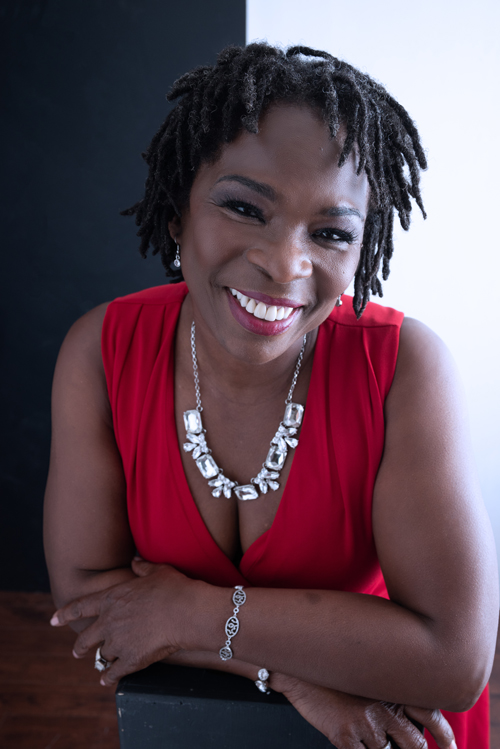



An alarming number of individuals being incarcerated is affecting the quality of life for our children and our Human Society at large. Statistics show a shocking rate of significant increase. The Sentencing Project notes that “The female incarcerated population stands over six times higher than in 1980. Over (half 58%) of imprisoned women in state prisons have a child under the age of Between 1980 and 2021, the number of incarcerated women increased by more than 525%, rising from a total of 26,326 in 1980 to 168,449 in 2021.” The Prison Policy initiative also states, “There are 172,700 women locked up in the United States. Moreover, in many states, women’s incarceration rates are continuing to grow faster than men’s.” This is a problem because the mother is now taken out of the home with the burden of responsibility shifting to another family member or society, making this our shared problem to tackle.
Statistics further state, “A staggering number of women who are incarcerated are not even convicted: more than a quarter of women who are behind bars have not yet had a trial. Moreover, 60% of women in jails under local control have not been convicted of a crime and are awaiting trial.” Being incarcerated and not given the opportunity to have a trial in a timely manner does not assist in changing behavior or the situation, let alone violate their basic civil rights. Women and girls remaining behind bars without a timely trial also is a factor in mindset decline.
Aside from women under local authority (or jurisdiction), state and federal agencies also pay local jails to house an additional 8,875 women. For example, ICE and the U.S. Marshals Service, which have fewer dedicated facilities for their detainees, contract with local jails to hold roughly 3,200 women. So, the number of women physically held in jails is even higher. These stats cause us to focus on how we can help a forgotten, yet important segment of our community.
Our recent history shows the disturbing rate at which women’s rights, safety, and security are being eroded with most progress made over the years being erased or annulled. The focus on women is because oftentimes this population is forgotten as noted above. Women become lost in the system due to most of the population being men. Women are also repeatedly subjected to sexual assault, physical attack, and psychological abuse by the prison system. All these result in lifelong consequences for women including unwanted pregnancies, diseases and PTSD that compromises their ability to rise above their circumstances – scenarios vastly different than their incarcerated male counterparts. Women who are provided with safety, security, humanity, the proper tools, skills, and values can have better opportunities to remain in their homes and provide for their families.
The Founder, Dr. Shirley Ann, served in the military and was an intricate part of the US Army Family Team Building (AFTB) and Family Readiness Group (FRG). Both these organizations were critical in the success of the family who remained behind while their Soldier was deployed or stationed away from the family. AFTB is a Family training and readiness program that provides participants with a better understanding of Army culture, as well as the skills and resources needed to become resilient, self-sufficient and self-reliant members of the military community. Whereas, The Family Readiness Group (FRG) provides an avenue of mutual support and assistance and a network of communication among family members, the chain of command, and community resources. The primary purpose of any FRG is to encourage self-sufficiency among its members by providing information, referral assistance, and mutual support. Replicating these proven concepts will facilitate a humane and equitable treatment of women and facilitate a supported return to civilian life for displaced women.

We are all human and we are all fallible. Our humanity resides in our ability to give second chances and take second chances to rise above circumstances and mistakes. We each hold the key to building bridges with empathy for guiding elf and others ashore during turbulent times and House of Nirvana will focus on that safe passage of women and families from displacement to safety via the 3 steps.

Dr. Shirley Ann is Founder and President of the House of Nirvana, focused on Acceptance, Redemption and Transcendence, to facilitate the return to civilian life, incarcerated women and women with incarcerated family members – by mastering The ART of Nirvana for the family healing.
Dr. Shirley Ann believes that each of our souls have its sacred purpose which allows us to pursue our unique path and flow freely to embrace a mindful life of meaning. Every woman, who nurtures and sustains life in families, organizations, and human society, needs the opportunity and assistance to live her intended uniqueness to allow free flow from her divine within to her maker and back.
Dr. Shirley Ann is a proud US Army Veteran and senior military leader, who has served our nation with honor and valor while being a single mom and wife. Her Military career has trained her on the importance of a mindful return to civilian life to become a productive citizen with self-reliance. She takes a page from this impactful lived experience to pay it forward to a group of women who can benefit from that similar assistance.
Dr. Shirley Ann worked through her US Army career as the wife of a military man who subsequently got incarcerated. This traumatic experience has fueled her continued passion to birth an intentionally designed process to help other women embrace a mindset that pays attention to live their purposeful life.
Dr. Shirly Ann’s formal education in Human Psychology, professional counseling, organizational development, and continuous improvement positions her to bring this much needed human service forward. Her training in Army Family Team Building has helped her develop mindset shift to produce high performance teams capable of functioning with social responsibility. Her experience as a realtor has given her the ability to enable and nurture family transitions into safe and secure homes. Together, her education, training and experience overlaid atop her military and family life makes her the right person to be the change maker in this underserved arena.